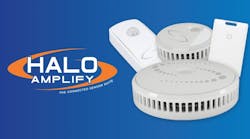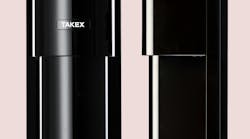There are plenty of security options but many small retailers are in denial about theft, writes Dorothy Kennedy
Australian retailers may be losing as much as $3 billion a year through theft or loss of stock, but many smaller operators are choosing not to protect their assets with anti-theft technologies.
According to the Australian Retailers Association, small business owners commonly do not use any security systems. ''A lot of retailers, they're not doing much at all,'' says Julie Bradshaw, ARA policy officer. The perception is echoed by Mark Voce, a director of Advancetag, a supplier of retail security systems in Western Australia. He says many retailers are in denial about theft: ''They don't want to know.''
Not all small businesses are security-shy. Network operator QuikTrak has been surprised by strong demand from plant and heavy vehicle owners for its vehicle-tracking system.
''We didn't even think about this market, to tell you the truth,'' confesses QuikTrak operations manager Gary Moore. The publicly listed telecommunications company is best known as a fleet security operator, using its UHF network to remotely trace vehicles and goods.
The favoured method of stealing a bobcat machine, for instance, is to load it on to a tip-truck and simply drive it away. Small contractors who take their rigs home for the night (insurance often does not cover vehicles left overnight on building sites) are particularly vulnerable. ''When they wake up in the morning, they literally don't have a business any more,'' says Moore. The QuikTrak system involves a transponder, ''buried'' somewhere on the vehicle, which communicates its location through the company's UHF networks.
According to supply-chain consultancy Benchmarking Success, customers are interested in security, but their focus is not on stock theft. Issues like product tampering and terrorism are bigger concerns, says the company's managing partner Stephen Hanman. ''If a food product ends up hurting someone, you need to know who you sold it to, and who they sold it to,'' he says.
When RFID (radio frequency identification) becomes widespread as a mechanism for tracking goods along the supply chain, the top 10 per cent of companies, already electronics-capable, will not face a huge impost. ''For someone who's got no barcoding, it's going to be a massive step up,'' Hanman believes.
Advanced security systems are nevertheless widely deployed by large retailers like Coles Myer and Woolworths. ''There are a number of anti-theft mechanisms that Coles currently uses,'' a spokesman for Coles Myer agrees, ''and we are always looking at the potential of new technologies as they come on the market.''
Smaller retailers who decide to invest in security are often drawn to established technologies such as electronic article surveillance (EAS). These systems consist of a tag or label attached to merchandise, and detectors installed at the entry and exit points of the store. If a shopper tries to take merchandise from the store, an alarm sounds.
''The EAS systems are probably the most effective deterrent against retail theft,'' says Mark Norton, general manager of the Australian subsidiary of electronic security company ADT. The company, whose customers include Telstra, David Jones and Harvey Norman, is looking at integrating EAS systems with RFID. It is also marketing intelligent video analytics software alongside its line of closed circuit television systems (CCTV).
Norton estimates that Australian retailers are losing some $3 billion a year through theft. He claims EAS systems can slice theft rates by up to 50 per cent, and intelligence can be added to them. ''We're investing a lot of money, about $1 billion a year in R&D on security products, and a significant amount of that is in the RFID space,'' says Norton. ADT is part of US-based Tyco Fire & Security.
Advancetag says 80 per cent of its business is in EAS, the rest is in closed circuit television. He says an EAS system for a standard boutique would cost between $5000 and $6000. Frost & Sullivan senior research analyst Parul Oswal says the Australian market for security and access control technologies was around $US12 million ($16 million) last year, and will grow to $US18 million in 2009.


